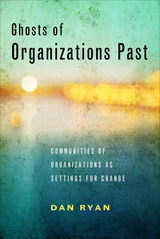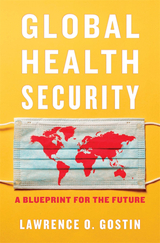6 start with G start with G

In Genius Belabored: Childbed Fever and the Tragic Life of Ignaz Semmelweis, Theodore G. Obenchain traces the life story of a nineteenth-century Hungarian obstetrician who was shunned and marginalized by the medical establishment for advancing a far-sighted but unorthodox solution to the appalling mortality rates that plagued new mothers of the day.
In engrossing detail, Obenchain recreates for readers the sights, smells, and activities within a hospital of that day. In an era before the acceptance of modern germ science, physicians saw little need for cleanliness or hygiene. As a consequence, antiseptic measures were lax and rudimentary. Especially vulnerable to contamination were new mothers, who frequently contracted and died from childbed fever (puerperal fever). Genius Belabored follows Semmelweis’s awakening to the insight that many of these deaths could be avoided with basic antiseptic measures like hand washing.
The medical establishment, intellectually unprepared for Semmelweis’s prescient hypothesis, rejected it for a number of reasons. It was unorthodox and went against the lingering Christian tradition that the dangers of childbirth were inherent to the lives of women. Complicating matters, colleagues did not consider Semmelweis an easy physician to work with. His peers described him as strange and eccentric. Obenchain offers an empathetic and insightful argument that Semmelweis suffered from bipolar disorder and illuminates how his colleagues, however dedicated to empirical science they might have been, misjudged Semmelweis’s methods based upon ignorance and their emotional discomfort with him.
In Genius Belabored, Obenchain identifies Semmelweis’s rightful place in the pantheon of scientists and physicians whose discoveries have saved the lives of millions. Obenchain’s biography of Semmelweis offers unique insights into the practice of medicine and the mindsets of physicians working in the premodern era. This fascinating study offers much of interest to general readers as well as those interested in germ theory, the history of medicine and obstetrics, or anyone wishing to better understand the trajectory of modern medicine.



Ryan draws on concepts from the study of organizations, social capital, and social networks to re-think questions such as “What kind of thing is a community?” and “Why is it so difficult to build community initiatives out of organizations?” He provides a social organizational explanation for problems familiar to anyone who has been involved in community programs, issues that are usually understood as personal incompetence, turf wars, greed, or corruption.
Ghosts of Organizations Past describes the challenges of using organizations to create change in places in dire need of it.

With lessons learned from COVID-19, a world-leading expert on pandemic preparedness proposes a pragmatic plan urgently needed for the future of global health security.
The COVID-19 pandemic revealed how unprepared the world was for such an event, as even the most sophisticated public health systems failed to cope. We must have far more investment and preparation, along with better detection, warning, and coordination within and across national boundaries. In an age of global pandemics, no country can achieve public health on its own. Health security planning is paramount.
Lawrence O. Gostin has spent three decades designing resilient health systems and governance that take account of our interconnected world, as a close advisor to the Centers for Disease Control and Prevention (CDC), the World Health Organization (WHO), and many public health agencies globally. Global Health Security addresses the borderless dangers societies now face, including infectious diseases and bioterrorism, and examines the political, environmental, and socioeconomic factors exacerbating these threats. Weak governance, ineffective health systems, and lack of preparedness are key sources of risk, and all of them came to the fore during the COVID-19 crisis, even—sometimes especially—in wealthy countries like the United States. But the solution is not just to improve national health policy, which can only react after the threat is realized at home. Gostin further proposes robust international institutions, tools for effective cross-border risk communication and action, and research programs targeting the global dimension of public health.
Creating these systems will require not only sustained financial investment but also shared values of cooperation, collective responsibility, and equity. Gostin has witnessed the triumph of these values in national and international forums and has a clear plan to tackle the challenges ahead. Global Health Security therefore offers pragmatic solutions that address the failures of the recent past, while looking toward what we know is coming. Nothing could be more important to the future health of nations.

READERS
Browse our collection.
PUBLISHERS
See BiblioVault's publisher services.
STUDENT SERVICES
Files for college accessibility offices.
UChicago Accessibility Resources
home | accessibility | search | about | contact us
BiblioVault ® 2001 - 2024
The University of Chicago Press









